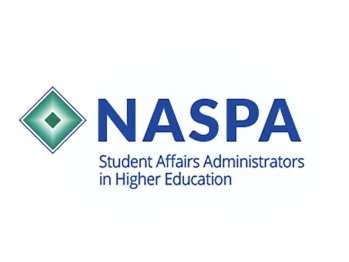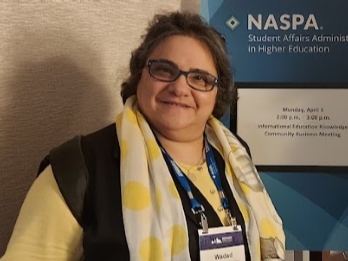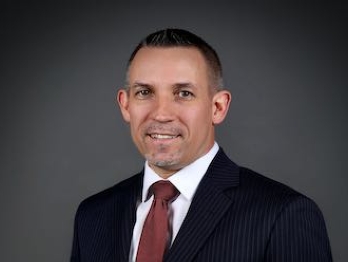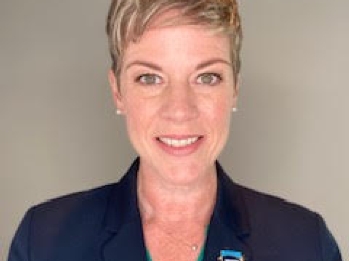
February 3, 2023
Call for Programs Submission Extended Deadline
December 16, 2022
Early Registration Deadline
February 24, 2023
Registration Deadline
April 2, 2023
Late Registration Deadline
March 1, 2023
Hotel Block Deadline
2023 NASPA International Symposium
Community Events at the NASPA Annual Conference Global Division International Education
April 1 - April 2, 2023 Boston, MA | United States
The NASPA International Symposium facilitates the advancement of global discussion and worldwide understanding of student affairs and services. A key International Symposium goal is to invite and explore new perspectives, and to create new connections to bridge international boundaries. In doing so, the International Symposium expands NASPA’s objective of providing professional learning opportunities to support preparedness for the realities of an increasingly globalized society. The International Symposium benefits those working in an international student service setting, as well as practitioners interested in further developing their global competency skills.
Presented By

Registration Information
NASPA Membership Information
Registration as a member is based on individual membership status at the time of the event. If your current membership will expire prior to the event, you will have the option to renew at the time of registration to receive the member rate.
If you are not a current member and are employed by a college or university that is an institutional member, you can join as a professional affiliate or international affiliate member for $80. If your institution is NOT a member, you can join as an associate affiliate member for $250. Both membership types provide access to the individual member rate for the event. Please visit the membership section of the NASPA website to learn more about membership types and benefits. We hope you’ll consider joining today!
If you are experiencing financial hardship, you may qualify for a NASPA Foundation Membership Scholarship, which can be used for membership dues.
For a comprehensive listing of NASPA registration policies, please visit this page.
Questions about:
Registration: registration@naspa.org
Programs/General Information: jrahyns@naspa.org
*include subject line “International Symposium” for the purpose of sorting incoming email
SYMPOSIUM REGISTRATION FEES
| NASPA Member with Annual Conference Registration | ||
| Early Registration - December 16, 2022 | Regular Registration - February 24, 2023 | Late Registration - April 5, 2023 |
| $200 | $220 | $265 |
| Non-Member with Annual Conference Registration | ||
| Early Registration - December 16, 2022 | Regualer Registration - February 24, 2023 | Late Registration - April 5, 2023 |
| $285 | $320 | $365 |
| NASPA Member without Annual Conference Registration | ||
| Early Registration - December 16, 2022 | Regular Registration - February 24, 2023 | Late Registration - April 5, 2023 |
| $275 | $310 | $355 |
| Non-Member without Annual Conference Registration | ||
| Early Registration - December 16, 2022 | Regular Registration - February 24, 2023 | Late Registration - April 5, 2023 |
| $300 | $350 | $410 |
Call for Programs
Submission Criteria
Proposals will be evaluated by several program reviewers using the following five (5) standards:
- Significant and creative contributions to the student affairs profession.
- Engaging program format that involves the audience and stimulates discussion.
- Conceptually strong foundation, well-written, with clearly stated outcomes and appropriately documented research and/or experience.
- Qualified presenters with expertise in the subject matter.
- Thematically relevant program content incorporating the conference focus area(s) into the program.
Notification: Presenters whose proposals are accepted must register for the symposium. Acceptance will be confirmed by the Symposium Committee.
Presenters will be expected to pay registration in order to present and attend the symposium. All presenters will be expected to provide an electronic copy of their presentation which will be posted on the conference website for participants to view at the conclusion of the symposium.
Symposium Tracks and Suggested Topics
International Student Services
A range of topics in this track may include international student orientation, transition, and retention programs; cultural adjustment related to students studying in another culture; ways to increase opportunities for engagement among both international and US-based students; programs that increase fluency and confidence in spoken and conversational languages. Sessions in this track could include best practices, informative information regarding successful programs that could be implemented on other campuses, challenges with international student transition and support, the use of technology and innovation, and other ways to showcase effective work with a specifically international student population
Mobility Programs
A diverse range of topics are applicable and include study abroad, minority representation in study abroad, student exchange, internships, service-learning, faculty led programs, athletics, and other global opportunities. Sessions in this track might examine best practices, challenges/obstacles, emerging trends, specific programs, and others related to international student mobility within higher education.
Global Perspectives, Issues, Culture, and Justice
A range of topics might include intercultural engagement programming, orientation immersion program, social/cultural practices and establishing norms, policy development, course content, political climate, racial justice issues in a global context, or other practices. Sessions in this track could include best practices, challenges/obstacles, emerging practices/trends, specific programs, programming models, academic models, or other related matters from a global perspective.
Professional Growth and Networking
A range of topics might include programming, orientation, networking, professional training, certification programs, leveraging technology to improve practice, or other opportunities. Sessions in this track could include current practices, challenges/obstacles, emerging practices/trends, specific programs, and models or other related matters on professional development.
Additional Call for Programs Information
Successful Proposals
Successful proposals should include:
- Lengthy description about session content that you will present.
- Relationship of the program to the conference themes outlined on the website.
- Identification of the program format (e.g., lecture, panel, debate) including methods for participant involvement (e.g., discussion, effective practice sharing, case study analysis).
- Evidence of the conceptual foundation for proposal content including ways the program content is grounded in research, relevant experience, a cogent model, or appropriate theory.
- Integration of equity, inclusion, and social justice for identified subpopulations (students of color, LGBTQIA+ students, international students, students with ability differences, undocumented students, etc.) or at a systems level (e.g. colonization, racial oppression and trauma, restrictive statewide policy for trans students' rights, etc.).
General Proposal Writing Tips
Looking for tips on writing an effective general NASPA proposal? See sample submissions and formatting tips in our Program Submission Guidelines.
Schedule at a Glance
Coming soon!
Coming Soon!
International Symposium Speakers
NASPA International Symposium Committee
Sponsorships
Health, Safety, and Responsibility
Event Safety During Ongoing Public Health Emergencies
With ongoing public health emergencies, NASPA is prepared to manage our place-based events with the health, safety, and well-being of our attendees, staff, presenters, exhibitors, sponsors, and speakers in mind. All participants, including, but not limited to, attendees, speakers, sponsors, volunteers, NASPA staff, service providers, and others are expected to abide by our code of conduct and all polices in effect for any event sponsored by the Association.
We will continue to monitor and update safety precautions for all of our conferences regularly and coordinate with trusted national resources, state and local public health agencies, and the hotels/venues hosting our events.
In all cases, we will continue to assess the risks in the area local to the event and the current status in the United States. In keeping with the Association's duty of care and the responsibility as host, NASPA has implemented safety requirements for many of our place-based convenings.
We reserve the right to modify these policies and procedures at any time given the rapidly changing nature of any current and ongoing public health emergencies.








